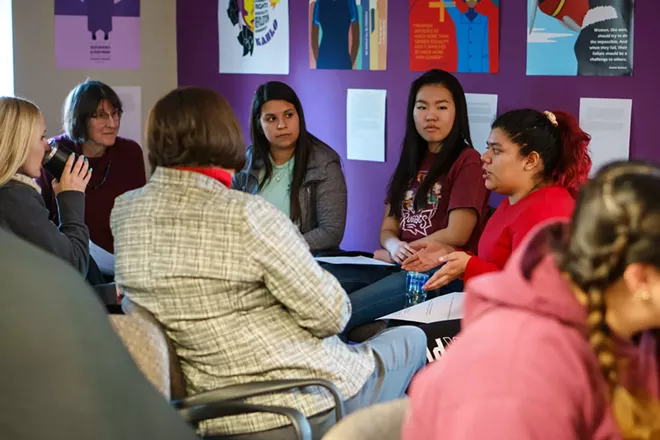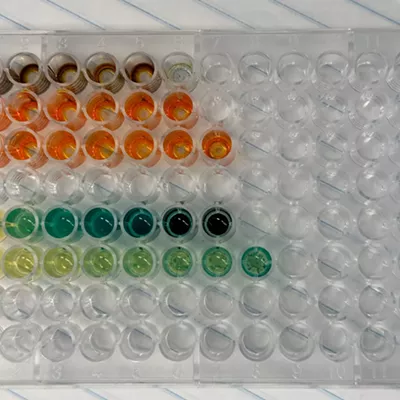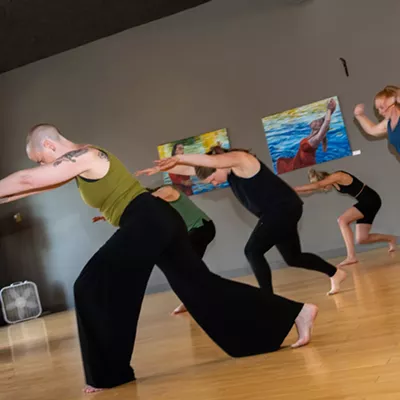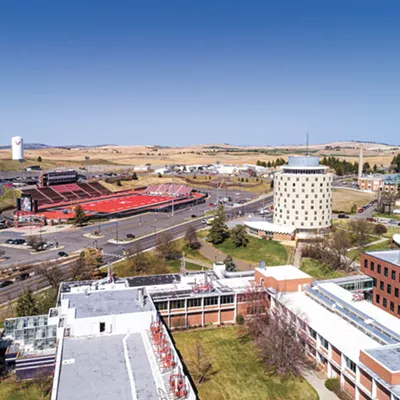
We are the directors of the American Indian Studies and the Gender, Women's & Sexuality Studies (GWSS) programs at Eastern Washington University. We are reeling at the latest racist mass shootings and all of the current attacks on bodily autonomy — from the slew of legislation criminalizing lifesaving support for trans kids to the banning of reproductive health care. We also recognize that the United States just hit the grim milestone of over 1 million COVID deaths, with Black, Indigenous and people of color disproportionately represented in that number. And there's the new report out of Deb Haaland's Department of Interior identifying more Native American boarding schools and burial sites than previously recognized by the settler state. So, we ask again, and always, whose lives matter?
These are issues we learn about, and grapple with, in our classes and programming. We analyze, as related phenomena, the fact that the U.S. is a global leader in COVID deaths, mass shootings, and ongoing colonial violence. We counter the misinformation and recruitment that leads too many young men to, in the words of Political Research Associates, "commit acts of political violence, motivated by White nationalism and misogyny." We provide curricula that lead to stronger graduation rates. We raise up the cultures, resilience and knowledge of our diverse communities and nations. In these difficult times, we are working to support those most impacted at EWU, and in our region. For example, we have recently featured programming with local activists and artists based in justice and healing.
We are writing here because we wish we could be doing more. The reality is all four of the diversity programs at Eastern (Africana, American Indian, Chicanx and GWSS) are overstretched and understaffed. In the last two years, under conditions of administrative churn and institutional crisis, GWSS has had its foundation of faculty and staff eroded by attrition and austerity. In fact, GWSS used to have a full professor who is a leading scholar in reproductive justice. We sorely need her expertise now, but she left in 2021. American Indian Studies has never had a permanent faculty member other than the director in its 50-plus years of existence.
Back in spring 2020, our late President Mary Cullinan eliminated the Office of Diversity & Inclusion, terminated the contract for our vice president for diversity and inclusion, Dr. Shari Clarke, and pushed to consolidate the four diversity programs. Students and community members rallied and forced her to reverse her decision. Faculty then voted no confidence in Cullinan, and she resigned the presidency in June 2020.
We've struggled under a series of interim presidents, provosts and deans ever since. Once the temporary wokeness of the summer of 2020 wore off, they threw the institution into a downward spiral chasing neoliberal austerity measures nearly to the point of no return. Administrators keep telling those of us in the diversity programs that we aren't earning our keep (at the same time, athletics got a pass). Apparently, we don't measure up on the scales of "student credit hours" or "full-time equivalency" or declared majors/minors.
We keep saying those metrics weren't designed for us, but that we are nonetheless incredibly valuable to the institution. Again, this is the question of mattering. The fact that EWU has four autonomous diversity programs makes the university unique and could be an incredible selling point. Employers want college graduates who have an understanding of our increasingly diverse society and global markets. We have been making these arguments, but it's like beating our heads against a brick wall.
Administration has moved from simply tying the purse strings and disallowing us from hiring permanent faculty and staff to actively trying to take away what little power and autonomy we have. Our futures are on the line, too, as we've both been informed our directorships of our respective programs will be terminated next month and in two years, respectively.
We are hopeful that incoming President Shari McMahan will right the ship. The thing is, that can't happen unless we as a community let her know what we want, what we value, what matters to us. Specifically, we need to communicate what future we see for Eastern.
It's a future where American Indian Studies not only has a director, but finally has at least one other tenured/tenure track faculty member. It's a future where Chicanx and Africana Studies have tenured directors. It's a future where gender diverse, trans, pregnant, parenting, women and queer students (and their allies) have adequate faculty and staff to develop the classes and programming that center them and their experiences. We encourage you to join us in communicating this vision to Dr. McMahan. ♦
Dr. Deirdre Almeida has served as the director of the American Indian Studies program at Eastern Washington University since 2001. Dr. Judy Rohrer has served as the director of the Gender, Women's & Sexuality Studies program at Eastern Washington University since 2018. You can find a petition to save the diversity programs here.


















